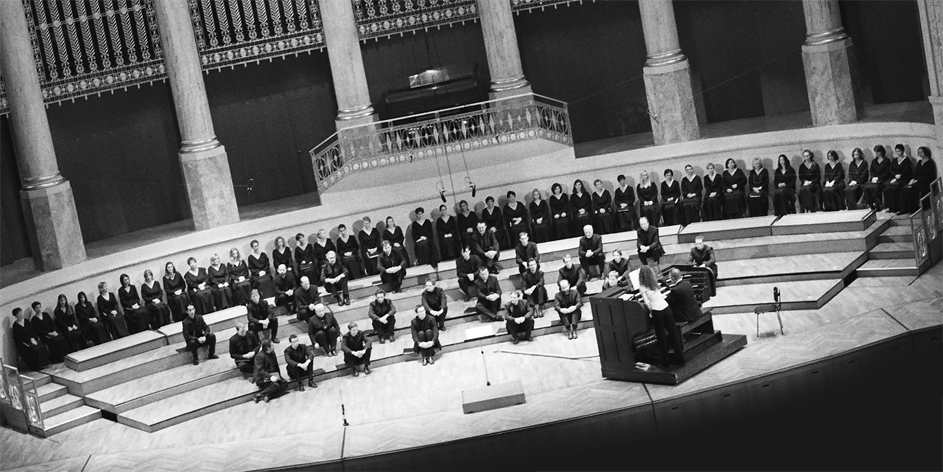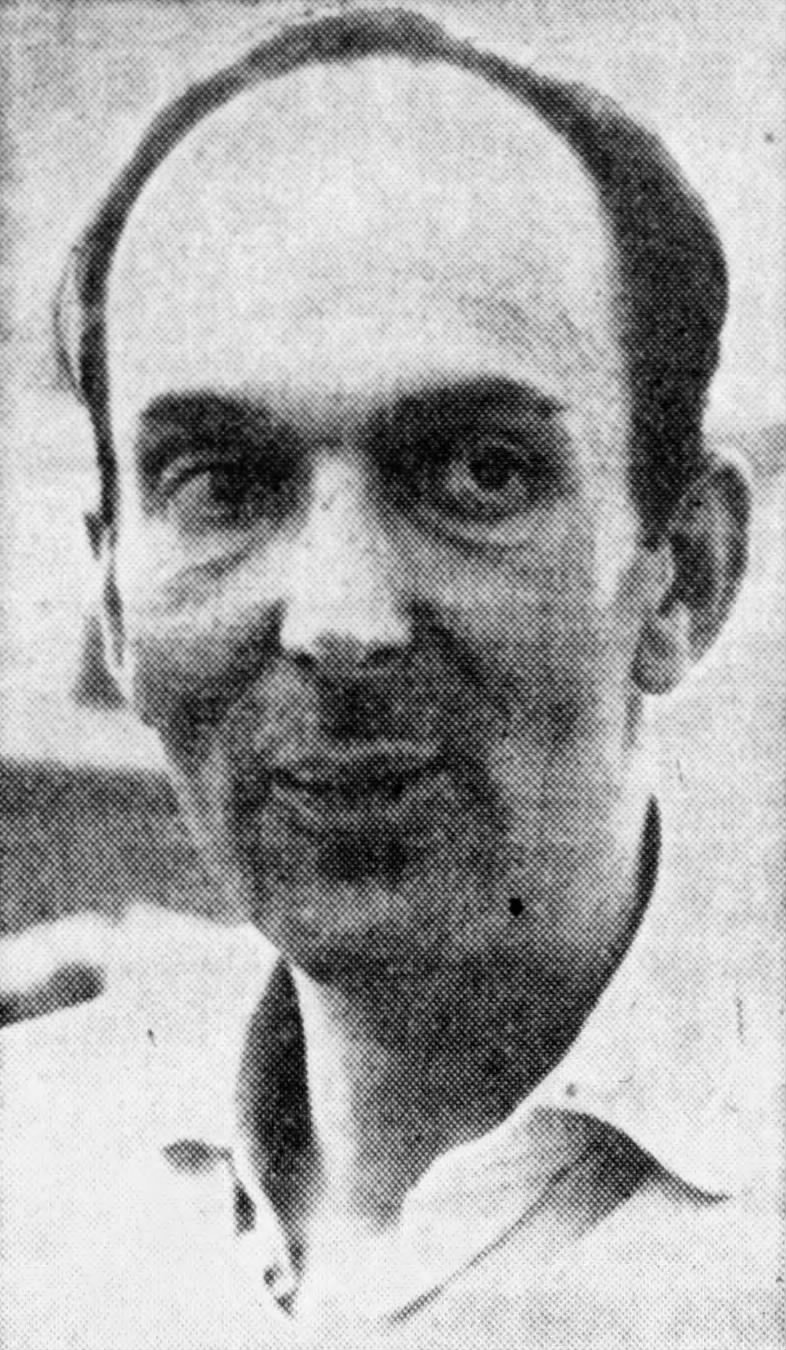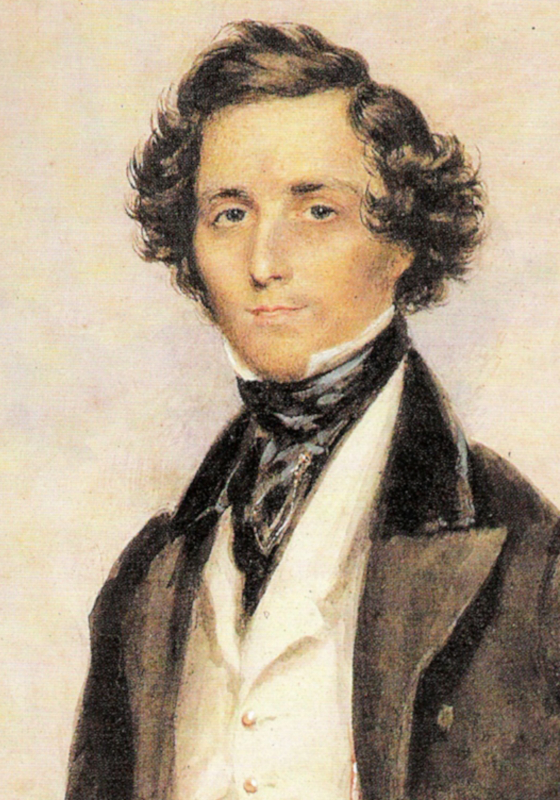|
Die Erste Walpurgisnacht
''Die erste Walpurgisnacht'' (''The First Walpurgis Night'') is a poem by Johann Wolfgang von Goethe, telling of the attempts of Druids in the Harz mountains to practice their pagan rituals in the face of new and dominating Christian forces. It was famously set to music by Felix Mendelssohn as a secular cantata for soloists (alto, tenor, baritone, bass), choir, and orchestra. He completed an initial version in 1831, and extensively revised it before publishing it as his Opus 60 in 1843. The composition consists of ten movements, including the programmatic overture, lasting about 36 minutes: *''Ouvertüre: Das schlechte Wetter – Der Übergang zum Frühling'' (Overture: Bad weather – Transition to Spring) # "Es lacht der Mai" (May is in full bloom): tenor & chorus of Druids & people. # "Könnt ihr so verwegen handeln?" (Could you be so rash, so daring?): alto, old woman, & chorus of wives of the people. # "Wer Opfer heut zu bringen scheut" (Whoever fears to sacrifice): bariton ... [...More Info...] [...Related Items...] OR: [Wikipedia] [Google] [Baidu] |
Cantata
A cantata (; ; literally "sung", past participle feminine singular of the Italian verb ''cantare'', "to sing") is a vocal composition with an instrumental accompaniment, typically in several movements, often involving a choir. The meaning of the term changed over time, from the simple single-voice madrigal of the early 17th century, to the multi-voice "cantata da camera" and the "cantata da chiesa" of the later part of that century, from the more substantial dramatic forms of the 18th century to the usually sacred-texted 19th-century cantata, which was effectively a type of short oratorio. Cantatas for use in the liturgy of church services are called church cantata or sacred cantata; other cantatas can be indicated as secular cantatas. Several cantatas were, and still are, written for special occasions, such as Christmas cantatas. Christoph Graupner, Georg Philipp Telemann and Johann Sebastian Bach composed cycles of church cantatas for the occasions of the liturgical year. ... [...More Info...] [...Related Items...] OR: [Wikipedia] [Google] [Baidu] |
1843 In Music
Events *February 6 – The Virginia Minstrels perform the first minstrel show (Bowery Amphitheatre, New York City). *May 22 – Gottfried Kinkel marries fellow musician Johanna Mockel. *November 13 – Gaetano Donizetti's final opera ''Dom Sébastien'' is premiered at the Paris Opera. *December 26 – Following the première of his last opera, ''Hernani'', Alberto Mazzucato retires from composing in order to become a full-time music teacher. *Approximate date – Euphonium invented. *August Conradi becomes organist of the Invalidenhaus, Berlin. *Hector Berlioz writes ''Grand traité d'instrumentation et d'orchestration modernes'', Op. 10 Popular music * "Columbia, the Gem of the Ocean" by Thomas Becket * "I Dreamt I Dwelt in Marble Halls" w. Alfred Bunn m. Michael William Balfe from the light opera ''The Bohemian Girl'' * "Old Dan Tucker", usually attributed to Dan Emmett * "Then You'll Remember Me" w. Alfred Bunn m. Michael William Balfe from the light opera ''The Bohemian G ... [...More Info...] [...Related Items...] OR: [Wikipedia] [Google] [Baidu] |
Sieglinde Wagner
Sieglinde Wagner (21 April 1921 – 31 December 2003) was an Austrian operatic contralto, who could also sing mezzo-soprano roles. Wagner was born in Linz, and studied in Linz and Munich. In 1947, she made her debut at the Vienna State Opera. Two years later, she was hired by Wilhelm Furtwängler to sing in ''The Magic Flute'' at the Salzburg Festival. After this successful collaboration, Furtwängler signed her to sing Floßhilde and Grimgerde in Richard Wagner's ''Der Ring des Nibelungen'' at La Scala. This was the beginning of a career that included many of Wagner's alto roles (she and the composer were not related). In 1950, Sieglinde Wagner sang as a contralto, as Orlovsky, a blase young nobleman in ''Die Fledermaus''. In 1952, she made her first appearance at the Städtische Oper Berlin as Maddalena in ''Rigoletto''. She sang '' Carmen'' there in December of the same year. This was the start of a 34-year relationship. Sieglinde Wagner had a very wide repertoire, includ ... [...More Info...] [...Related Items...] OR: [Wikipedia] [Google] [Baidu] |
Wiener Singakademie
The Wiener Singakademie is a choir in Vienna, Austria. History As the first mixed choir in Vienna, the Wiener Singakademie was founded in 1858 to establish a "Singübungsanstalt" - an institution for the training of voices. It aims to promote the works of the traditional masters, and include contemporary works. In 1862, the young Johannes Brahms was invited to come to Vienna as the choir’s director. Conductors with whom the choir primarily worked included Gustav Mahler, Richard Strauss and Bruno Walter, the latter becoming the choir’s director for a number of years. Composers who conducted premiere performances of their works with the Wiener Singakademie have included Edvard Grieg, Anton Rubinstein and Pietro Mascagni. After 55 years as an independent choir, the Wiener Singakademie moved in 1913 to the newly opened Wiener Konzerthaus as part of the Wiener Konzerthausgesellschaft. In the 1950s and 1960s the choir was led by Hans Gillesberger. Wilhelm Furtwängler and Paul ... [...More Info...] [...Related Items...] OR: [Wikipedia] [Google] [Baidu] |
Vienna Symphony
The Vienna Symphony (Vienna Symphony Orchestra, german: Wiener Symphoniker) is an Austrian orchestra based in Vienna. Its primary concert venue is the Konzerthaus, Vienna, Vienna Konzerthaus. In Vienna, the orchestra also performs at the Musikverein and at the Theater an der Wien. History In 1900, Ferdinand Löwe founded the orchestra as the ''Wiener Concertverein'' (Vienna Concert Society). In 1913 it moved into the Konzerthaus, Vienna. In 1919 it merged with the Tonkünstler Orchestra. In 1933 it acquired its current name. Despite a lull in concert attendance after the introduction of radio during the 1920s, the orchestra survived until the invasion of Austria in 1938 and became incorporated into the German Culture Orchestras. As such, they were used for purposes of propaganda until, depleted by assignments to work in munitions factories, the orchestra closed down on September 1, 1944. Their first post-war concert occurred on September 16, 1945, performing Gustav Mahler's Sym ... [...More Info...] [...Related Items...] OR: [Wikipedia] [Google] [Baidu] |
Igor Markevitch
Igor Borisovich Markevitch (russian: Игорь Борисович Маркевич, ''Igor Borisovich Markevich'', uk, Ігор Борисович Маркевич, ''Ihor Borysovych Markevych''; 27 July 1912 – 7 March 1983) was a Russian-born composer and conductor who studied and worked in Paris and became a naturalized Italian and French citizen in 1947 and 1982 respectively. He was commissioned in 1929 for a piano concerto by impresario Serge Diaghilev of the Ballet Russe de Monte Carlo. Markevitch settled in Italy during World War II. After the war, he moved to Switzerland. He had an international conducting career from there. He was married twice and had three sons and two daughters. Origin He was born in Kiev, Kiev Governorate, Russian Empire (today Kyiv, Ukraine) to a family of Ukrainian Cossack ''starshyna'' who were ennobled in the 18th century. His great-grandfather Andrey Markevitch was a Secretary of State at the time of Alexander II of Russia, Actual Priv ... [...More Info...] [...Related Items...] OR: [Wikipedia] [Google] [Baidu] |
Elijah (oratorio)
''Elijah'' (german: Elias), Op. 70, MWV A 25, is an oratorio by Felix Mendelssohn depicting events in the life of the Prophet Elijah as told in the books 1 Kings and 2 Kings of the Old Testament. It premiered on 26 August 1846. Music and its style This piece was composed in the spirit of Mendelssohn's Baroque predecessors Bach and Handel, whose music he greatly admired. In 1829 Mendelssohn had organized the first performance of Bach's '' St Matthew Passion'' since the composer's death and was instrumental in bringing this and other Bach works to widespread popularity. By contrast, Handel's oratorios never went out of fashion in England. Mendelssohn prepared a scholarly edition of some of Handel's oratorios for publication in London. ''Elijah'' is modelled on the oratorios of these two Baroque masters; however, in its lyricism and use of orchestral and choral colour the style clearly reflects Mendelssohn's own genius as an early Romantic composer. The work is scored for eigh ... [...More Info...] [...Related Items...] OR: [Wikipedia] [Google] [Baidu] |
A Midsummer Night's Dream (Mendelssohn)
At two separate times, Felix Mendelssohn composed music for William Shakespeare's play ''A Midsummer Night's Dream'' (in German ''Ein Sommernachtstraum''). First in 1826, near the start of his career, he wrote a concert overture ( Op. 21). Later, in 1842, only a few years before his death, he wrote incidental music (Op. 61) for a production of the play, into which he incorporated the existing overture. The incidental music includes the famous "Wedding March". Overture The overture in E major, Op. 21, was written by Mendelssohn at 17 years and 6 months old (it was finished on 6 August 1826).''Grove's Dictionary of Music and Musicians'', 5th ed., 1954 Contemporary music scholar George Grove called it "the greatest marvel of early maturity that the world has ever seen in music". It was written as a concert overture, not associated with any performance of the play. The overture was written after Mendelssohn had read a German translation of the play in 1826. The translation was by A ... [...More Info...] [...Related Items...] OR: [Wikipedia] [Google] [Baidu] |
May Day
May Day is a European festival of ancient origins marking the beginning of summer, usually celebrated on 1 May, around halfway between the spring equinox and summer solstice. Festivities may also be held the night before, known as May Eve. Traditions often include gathering wildflowers and green branches, weaving floral garlands, crowning a May Queen (sometimes with a male companion), and setting up a Maypole, May Tree or May Bush, around which people dance. Bonfires are also part of the festival in some regions. Regional varieties and related traditions include Walpurgis Night in central and northern Europe, the Gaelic festival Beltane, the Welsh festival Calan Mai, and May devotions to the Blessed Virgin Mary. It has also been associated with the ancient Roman festival Floralia. In 1889, 1 May was chosen as the date for International Workers' Day by the Second International, to commemorate the Haymarket affair in Chicago and the struggle for an eight-hour working day. ... [...More Info...] [...Related Items...] OR: [Wikipedia] [Google] [Baidu] |
1833 In Music
This article is about music-related events in 1833. Events *February 24 – The Grand Theatre, Warsaw, Poland, is inaugurated with a production of Rossini's ''The Barber of Seville''. *May 13 – Felix Mendelssohn's Symphony No. 4 (Mendelssohn), Italian Symphony in A major, Op. 90, is premièred under the composer's baton in London; although very successful there he withdraws it for revision. *July 8 – Lyrics by Francisco Acuña de Figueroa are selected as the National Anthem of Uruguay. *October 3 – French composer Hector Berlioz marries Anglo-Irish actress Harriet Smithson in a civil ceremony at the British Embassy in Paris with Franz Liszt, Liszt as one of the witnesses. *December 1 – Launch of ''Le Ménestrel'', a French weekly music journal; it survives until 1940. *Late – First publication of the Toccata and Fugue in D minor, BWV 565 for organ attributed to Johann Sebastian Bach as part of a collection of Bach's organ works produced by Breitkopf & Härtel in Leipzig a ... [...More Info...] [...Related Items...] OR: [Wikipedia] [Google] [Baidu] |
1830 In Music
This article is about music-related events in 1830. Events *August 25 – A performance of Daniel Auber's ''La muette de Portici'' at La Monnaie in Brussels helps trigger the Belgian Revolution. *October **Maria Malibran, Margarethe Stockhausen and Charles de Bériot tour the English Midlands. **Felix Mendelssohn arrives in Italy. *November 2 – Frédéric Chopin, aged twenty, leaves Warsaw for Austria. *December 5 – Franz Liszt attends the first performance of Hector Berlioz's ''Symphonie fantastique''. It inspires him to search for new expressive effects on the piano. *In Britain: **The Royal Academy of Music is granted a charter by King George IV of the United Kingdom. **Charles Lucas is appointed official composer and cellist to Queen Adelaide. Classical music * Frédéric Chopin ** 4 Mazurkas Op. 6 ** Piano Concerto No. 1 ** ''Revolutionary'' Étude, Op. 10, No. 12 * George Onslow – Symphony No. 1 in A Major * Hector Berlioz – ''Symphonie Fantastique'' * Felix Mendelss ... [...More Info...] [...Related Items...] OR: [Wikipedia] [Google] [Baidu] |
1812 In Music
This is a list of music-related events in 1812. Events *January 17 – Carl Maria von Weber leaves Leipzig for Gotha. *February 11 – Carl Czerny gives the first Vienna performance of Beethoven's "Emperor" concerto. *February 18 – Carl Maria von Weber performs in Dresden but is not a success. *February 20 – Weber and his friend, clarinettist Heinrich Baermann, stay overnight in Berlin with the family of Baermann's former teacher Joseph Beer (father of Giacomo Meyerbeer). *March 8 – Composer Georg Joseph Vogler and his pupil Jacob Beer, the future Meyerbeer, leave Darmstadt for Munich. *May – The Royal Swedish Opera reopens after a 5-year gap. *May 26 – Luigi Cherubini resigns from his position at the Académie Impériale de Musique. *June 17 – Vogler and his pupil Beer are presented to the Queen of Bavaria at Nymphenburg. *July 2 – Ludwig van Beethoven visits his patron Prince Kinsky, seeking an advance on his promised remuneration. *July 26 – Fifteen-year-o ... [...More Info...] [...Related Items...] OR: [Wikipedia] [Google] [Baidu] |




_-_WGA00311.jpg)

_by_Antonio_Reyna_Manescau.jpg)